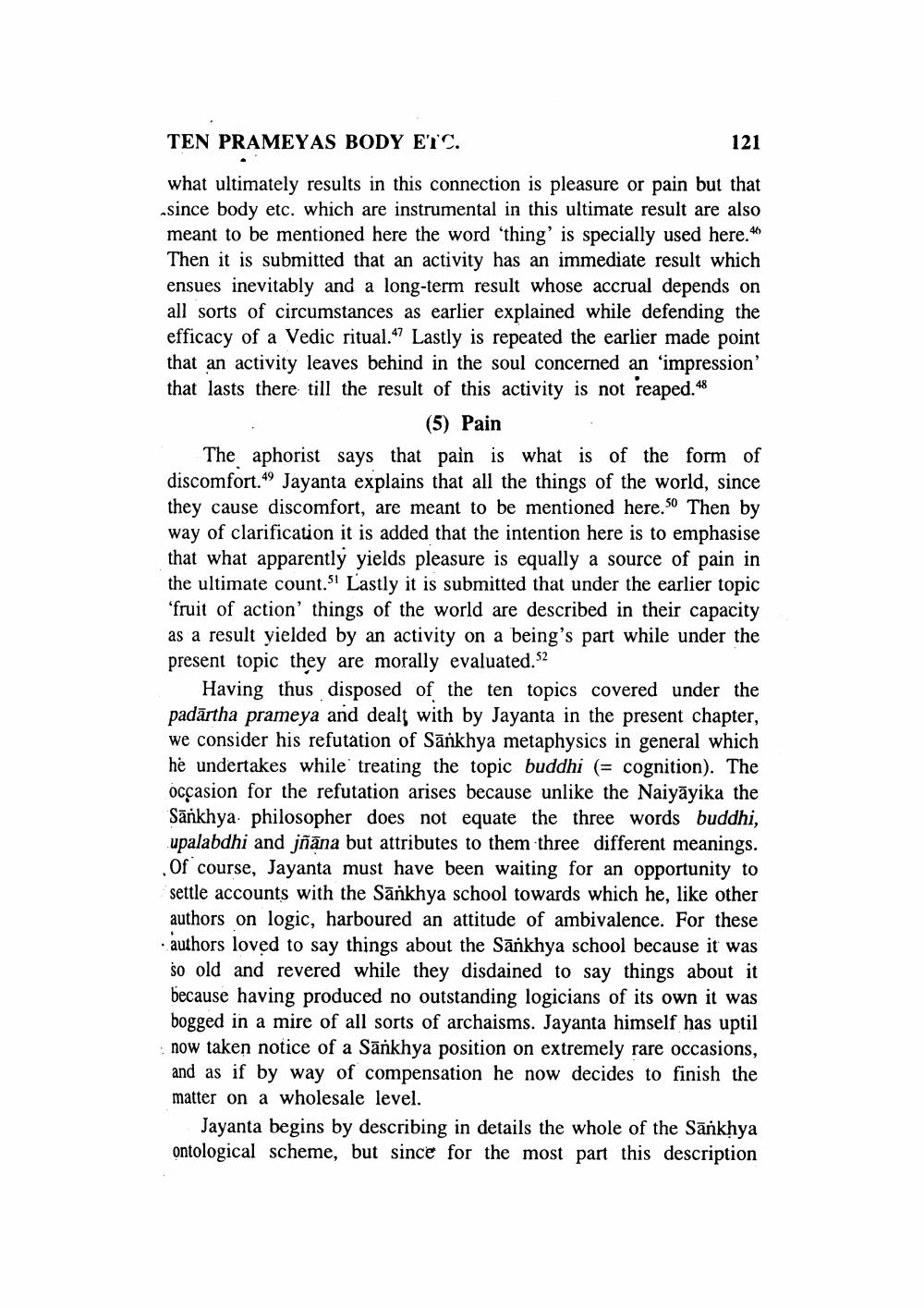________________
TEN PRAMEYAS BODY ETC.
121
what ultimately results in this connection is pleasure or pain but that since body etc. which are instrumental in this ultimate result are also meant to be mentioned here the word 'thing' is specially used here." Then it is submitted that an activity has an immediate result which ensues inevitably and a long-term result whose accrual depends on all sorts of circumstances as earlier explained while defending the efficacy of a Vedic ritual.“7 Lastly is repeated the earlier made point that an activity leaves behind in the soul concerned an 'impression' that lasts there till the result of this activity is not reaped. 48
(5) Pain The aphorist says that pain is what is of the form of discomfort.49 Jayanta explains that all the things of the world, since they cause discomfort, are meant to be mentioned here. 50 Then by way of clarification it is added that the intention here is to emphasise that what apparently yields pleasure is equally a source of pain in the ultimate count.Si Lastly it is submitted that under the earlier topic 'fruit of action' things of the world are described in their capacity as a result yielded by an activity on a being's part while under the present topic they are morally evaluated. S2
Having thus disposed of the ten topics covered under the padārtha prameya and dealt with by Jayanta in the present chapter, we consider his refutation of Sānkhya metaphysics in general which he undertakes while treating the topic buddhi (= cognition). The occasion for the refutation arises because unlike the Naiyāyika the Sānkhya philosopher does not equate the three words buddhi, upalabdhi and jñāna but attributes to them three different meanings. Of course, Jayanta must have been waiting for an opportunity to settle accounts with the Sānkhya school towards which he, like other authors on logic, harboured an attitude of ambivalence. For these authors loved to say things about the Sānkhya school because it was so old and revered while they disdained to say things about it because having produced no outstanding logicians of its own it was bogged in a mire of all sorts of archaisms. Jayanta himself has uptil now taken notice of a Sānkhya position on extremely rare occasions, and as if by way of compensation he now decides to finish the matter on a wholesale level.
Jayanta begins by describing in details the whole of the Sānkhya ontological scheme, but since for the most part this description




